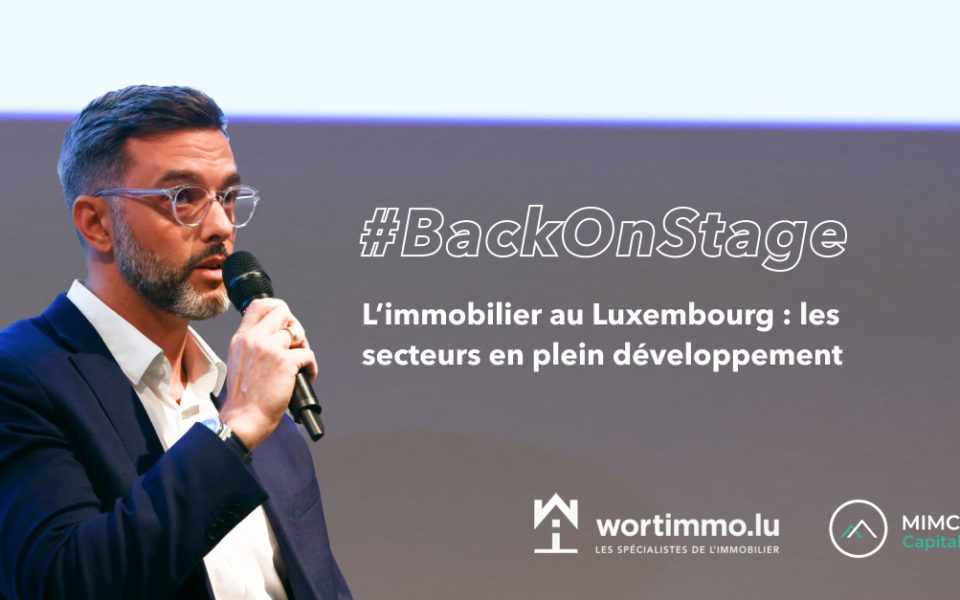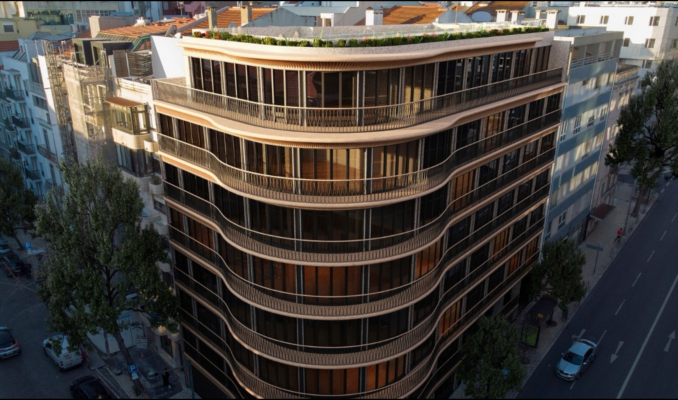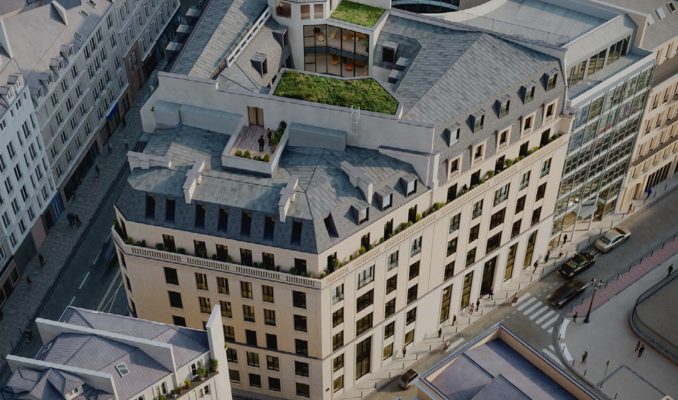Ocity II
Invest in Luxembourg real estate with OCITY II
Fonds ouvert à la souscription
Please fill in this mandatory field.
Please fill in this mandatory field.
Veuillez renseigner un numéro de téléphone valide.
Please fill in this mandatory field.
Veuillez renseigner une adresse email valide.
Please fill in this mandatory field.
Please fill in this mandatory field.
Please fill in this mandatory field.
Please fill in this mandatory field.
Please fill in this mandatory field.
À toutes fins utiles, il vous est rappelé que MIMCO Asset Management est une filiale du groupe MIMCO Capital et qu’elles sont deux entités différentes. La société MIMCO Capital est une société de droit luxembourgeois non régulée qui propose les solutions d’investissement Mercureim EF1, Everest One, BUILDIM 19 et OCITY. Ses fonds sont réservés exclusivement aux investisseurs professionnels au sens de la directive 2014/65/UE - MiFID II. MIMCO Asset Management est née du développement de MIMCO Capital vers la France. MIMCO Asset Management est une société de gestion de droit français régulée par l’AMF sous l’agrément n° GP-21000018, qui gère les fonds MIMCO Grand-Ducal, MIMCO Revitalize et MIMCO Green Value. Par renvoi de l'article L. 214-144 du CMF, ses fonds en cours et à venir sont exclusivement réservés aux investisseurs professionnels et assimilés professionnels en France, répondant aux conditions de l’article 423-27-1 du Règlement général de l’AMF, à savoir ceux susceptibles d’investir au minimum 100.000 EUR. Il est de votre seule responsabilité de connaître et de respecter toutes les législations et réglementations applicables dans la juridiction qui vous concerne en relation avec votre accès à ce site internet. Si vous n'êtes pas certain de pouvoir être considéré comme un investisseur professionnel au regard des lois et règlements en vigueur, vous devriez solliciter le conseil d’un expert indépendant. L’ensemble des contenus de ce site web est fourni uniquement à des fins d’information et ne constitue nullement une offre ou une recommandation d’achat ou de vente de produits ou services financiers quelconques, ni une promesse d’entreprendre ou de solliciter une activité, et ne saurait être considéré comme fiable en relation avec une offre ou une vente quelconque de produits ou services financiers. Les informations figurant sur ce site sont protégées par le droit d’auteur et tous les droits sont réservés. Elles ne peuvent être ni reproduites, ni copiées, ni redistribuées en totalité ou en partie. En cliquant sur « Continuer », vous confirmez à MIMCO Asset Management que vous accédez à ce site en qualité d'investisseur professionnel disposant des connaissances et des compétences nécessaires pour évaluer les risques associés aux investissements dans des produits financiers, de même, vous confirmez que votre utilisation de ce site ne viole aucune loi ou réglementation applicable.
À toutes fins utiles, il vous est rappelé que MIMCO Platform est une filiale du groupe MIMCO Capital et qu’elles sont deux entités différentes. La société MIMCO Capital est une société de droit luxembourgeois non régulée qui propose les solutions d’investissement Mercureim EF1, Everest One, BUILDIM 19 et OCITY. Ses fonds sont réservés exclusivement aux investisseurs professionnels au sens de la directive 2014/65/UE - MiFID II. MIMCO Platform est née du développement de MIMCO Capital vers la France. MIMCO Platform est une société de gestion de droit français régulée par l’AMF sous l’agrément n° GP-21000018, qui gère les fonds MIMCO Grand-Ducal, MIMCO Revitalize et MIMCO Green Value. Par renvoi de l'article L. 214-144 du CMF, ses fonds en cours et à venir sont exclusivement réservés aux investisseurs professionnels et assimilés professionnels en France, répondant aux conditions de l’article 423-27-1 du Règlement général de l’AMF, à savoir ceux susceptibles d’investir au minimum 100.000 EUR. Il est de votre seule responsabilité de connaître et de respecter toutes les législations et réglementations applicables dans la juridiction qui vous concerne en relation avec votre accès à ce site internet. Si vous n'êtes pas certain de pouvoir être considéré comme un investisseur professionnel au regard des lois et règlements en vigueur, vous devriez solliciter le conseil d’un expert indépendant. L’ensemble des contenus de ce site web est fourni uniquement à des fins d’information et ne constitue nullement une offre ou une recommandation d’achat ou de vente de produits ou services financiers quelconques, ni une promesse d’entreprendre ou de solliciter une activité, et ne saurait être considéré comme fiable en relation avec une offre ou une vente quelconque de produits ou services financiers. Les informations figurant sur ce site sont protégées par le droit d’auteur et tous les droits sont réservés. Elles ne peuvent être ni reproduites, ni copiées, ni redistribuées en totalité ou en partie. En cliquant sur « Continuer », vous confirmez à MIMCO Platform que vous accédez à ce site en qualité d'investisseur professionnel disposant des connaissances et des compétences nécessaires pour évaluer les risques associés aux investissements dans des produits financiers, de même, vous confirmez que votre utilisation de ce site ne viole aucune loi ou réglementation applicable.
À toutes fins utiles, il vous est rappelé que MIMCO Capital est une filiale du groupe MIMCO Capital et qu’elles sont deux entités différentes. La société MIMCO Capital est une société de droit luxembourgeois non régulée qui propose les solutions d’investissement Mercureim EF1, Everest One, BUILDIM 19 et OCITY. Ses fonds sont réservés exclusivement aux investisseurs professionnels au sens de la directive 2014/65/UE - MiFID II. MIMCO Capital est née du développement de MIMCO Capital vers la France. MIMCO Capital est une société de gestion de droit français régulée par l’AMF sous l’agrément n° GP-21000018, qui gère les fonds MIMCO Grand-Ducal, MIMCO Revitalize et MIMCO Green Value. Par renvoi de l'article L. 214-144 du CMF, ses fonds en cours et à venir sont exclusivement réservés aux investisseurs professionnels et assimilés professionnels en France, répondant aux conditions de l’article 423-27-1 du Règlement général de l’AMF, à savoir ceux susceptibles d’investir au minimum 100.000 EUR. Il est de votre seule responsabilité de connaître et de respecter toutes les législations et réglementations applicables dans la juridiction qui vous concerne en relation avec votre accès à ce site internet. Si vous n'êtes pas certain de pouvoir être considéré comme un investisseur professionnel au regard des lois et règlements en vigueur, vous devriez solliciter le conseil d’un expert indépendant. L’ensemble des contenus de ce site web est fourni uniquement à des fins d’information et ne constitue nullement une offre ou une recommandation d’achat ou de vente de produits ou services financiers quelconques, ni une promesse d’entreprendre ou de solliciter une activité, et ne saurait être considéré comme fiable en relation avec une offre ou une vente quelconque de produits ou services financiers. Les informations figurant sur ce site sont protégées par le droit d’auteur et tous les droits sont réservés. Elles ne peuvent être ni reproduites, ni copiées, ni redistribuées en totalité ou en partie. En cliquant sur « Continuer », vous confirmez à MIMCO Capital que vous accédez à ce site en qualité d'investisseur professionnel disposant des connaissances et des compétences nécessaires pour évaluer les risques associés aux investissements dans des produits financiers, de même, vous confirmez que votre utilisation de ce site ne viole aucune loi ou réglementation applicable.

Christophe Nadal, co-founder and CEO of MIMCO Capital, reviews the key points of his speech.
Since the summer of 2022, the Luxembourg real estate market has been experiencing some disturbances due to a new international economic context linked to a persistent inflationary situation.
The vise is tightening: a market in search of solutions?
The European Central Bank (ECB) has made successive increases in its key rate in order to limit galloping inflation to a rate of 2%1 , estimated at 7%1 in April 2023 for the euro zone. The ECB's key interest rates were raised by 375 basis points between July 2022 and May 2023.1
In addition, the ECB and regulators have imposed restrictions and increased vigilance on banks in granting credit. This firm policy, combined with rising rates, is leading to a significant decrease in the number of home loans being granted. The direct consequence is inevitably the slowdown of the Luxembourg real estate market, which is heavily dependent on this mode of financing.
While the local market in general is in an inflationary dynamic, paradoxically the real estate market is starting to follow the opposite trend with some price decreases already observed.
A decrease, but at what price?
The increase in key interest rates has put additional pressure on the purchasing power of households, making it de facto more and more difficult for them to buy a home. In this context, real estate prices remain high for the time being, which has led to a disparity between supply and demand.
The sector of the sale of properties in the future state of completion (VEFA) has been hit hard. Indeed, as their prices are structurally higher than those of existing properties, this has led to a more pronounced decline in sales in this sector, and even a sudden halt for some. However, keeping assets in inventory can entail significant costs for real estate developers, which may encourage them to reduce their margins in order to promote sales. This practice can have a downward impact on real estate market prices, as developers consider the increased cost of financing for potential buyers. Some developers have also chosen to withdraw some of their projects from the market.
However, the real estate market is being driven by the sale of existing properties. On the one hand, these properties reassure buyers and banks by not being dependent on possible increases in the price of materials, and on the other hand, they are more affordable than VEFA.
This current downward trend, for both VEFA and existing properties, can be explained by several factors. These include the stabilization or even decline in the cost of energy and the price of construction materials, the reorganization of logistics, and the efforts of construction companies to win contracts.
However, this drop in VEFA prices must be qualified, and it is important to note that the factors mentioned above do not automatically guarantee a drop in real estate prices. Indeed, if the land has been purchased at a high price by the developer, this may limit their ability to lower sales prices. In addition, with interest rates rising and the length of time it takes to carry deals increasing, many developers may be forced to keep prices high in order to meet their higher financing costs.
It is important to note that pricing in the real estate market is a complex and multifactorial process. Financing costs are just one of many factors that influence developers' pricing decisions, along with factors such as the cost of purchasing land, supply and demand, the location of the property, the general state of the local real estate market, tax policies, and many others.
Despite this slight recovery, the Luxembourg real estate market remains uncertain in the short term. Real estate promoters must therefore adapt their policies to this new market situation.
Towards a renewal of the rental market?
Unlike the sales market, the rental market is experiencing a sustained dynamic. This trend is also accompanied by a significant increase in rents. The difficulty of accessing property ownership has as an immediate consequence : a demand for rental that exceeds the available supply and leads to an adjustment of the market.
There has also been a sharp increase in the number of conversions of single-family homes into furnished, serviced co-living spaces. This practice is emerging in response to the high cost and inflexibility of the rental market, offering tenants and landlords better use of space and more flexibility.
This important shift in space utilization is also observed in the office space. Companies are increasingly opting for coworking and flex-office spaces, which also allow for a more efficient use of space while promoting collaboration and flexibility.
These transformations reflect the real estate market's adaptation to new economic realities and the changing needs of tenants and companies.
Rethinking office spaces, the winning strategy?
This trend began before the pandemic but has intensified significantly during this period when users have redefined their relationship to the workspace (telecommuting, flex office…). This mutation has led to the emergence of new needs and demands that companies must face to preserve their attractiveness and promote the development of their employees.
Faced with these changes, developers are forced to rethink their traditional concept of the office for more flexibility, services and comfort, or else they will not meet the real expectations of their tenants.
MIMCO Capital Group has taken these changes into account and has completely redesigned one of its office projects.
Initially, this project was intended to include only office and retail space. The concept has been totally rethought to include an international hotel chain, a lounge/bar, a rooftop restaurant, a crèche, a digitalized management of parking & recharging stations and a connected coworking space.
Through the addition of services, a real added value has been brought to the project and it is clear that the office part of the project is very much in demand by potential tenants who already appreciate these additional services. This demonstrates MIMCO's ability to adapt and propose innovative solutions to meet the new needs of the Luxembourg real estate market.
This example shows that the current situation can also be an opportune moment to diversify and explore alternative investment strategies in the real estate field.
1 Source Eurostat : https://ec.europa.eu/eurostat/fr/web/products-euro-indicators/w/2-17052023AP#:~:text=Le%20taux%20d'inflation%20annuel%20de%20la%20zone%20euro
%20s,%C3%A9tait%20de%207%2C4%25.

MIMCO Group announces the delivery of Santos Townhouse, a high‑end hospitality residence located in the heart of the historic Santos district in Lisbon.
Announcement

MIMCO Group, a leading player in pan‑European value‑add real estate, announces the appointment of Quentin Verschoren as Chief Operating Officer for MIMCO Capital.
Corporate

MIMCO Group announces the acquisition of the Conde Redondo real estate project, located in the heart of Lisbon’s sought‑after Santo António district. This conversion of an office building into a serviced residence aligns with the Group’s ongoing pan‑European development strategy.
Announcement

MIMCO and Foncière Renaissance announce the acquisition of the building located at 48 rue Notre‑Dame des Victoires, in the 2nd arrondissement of Paris, opposite Palais Brongniart and in the heart of the Opéra Central Business District.
Announcement